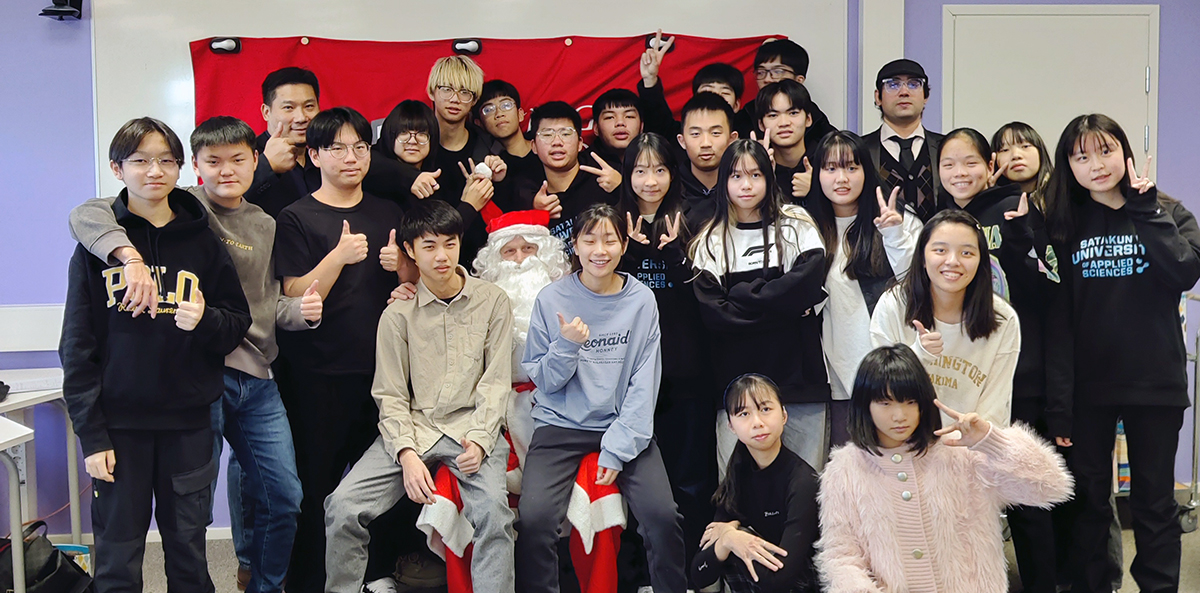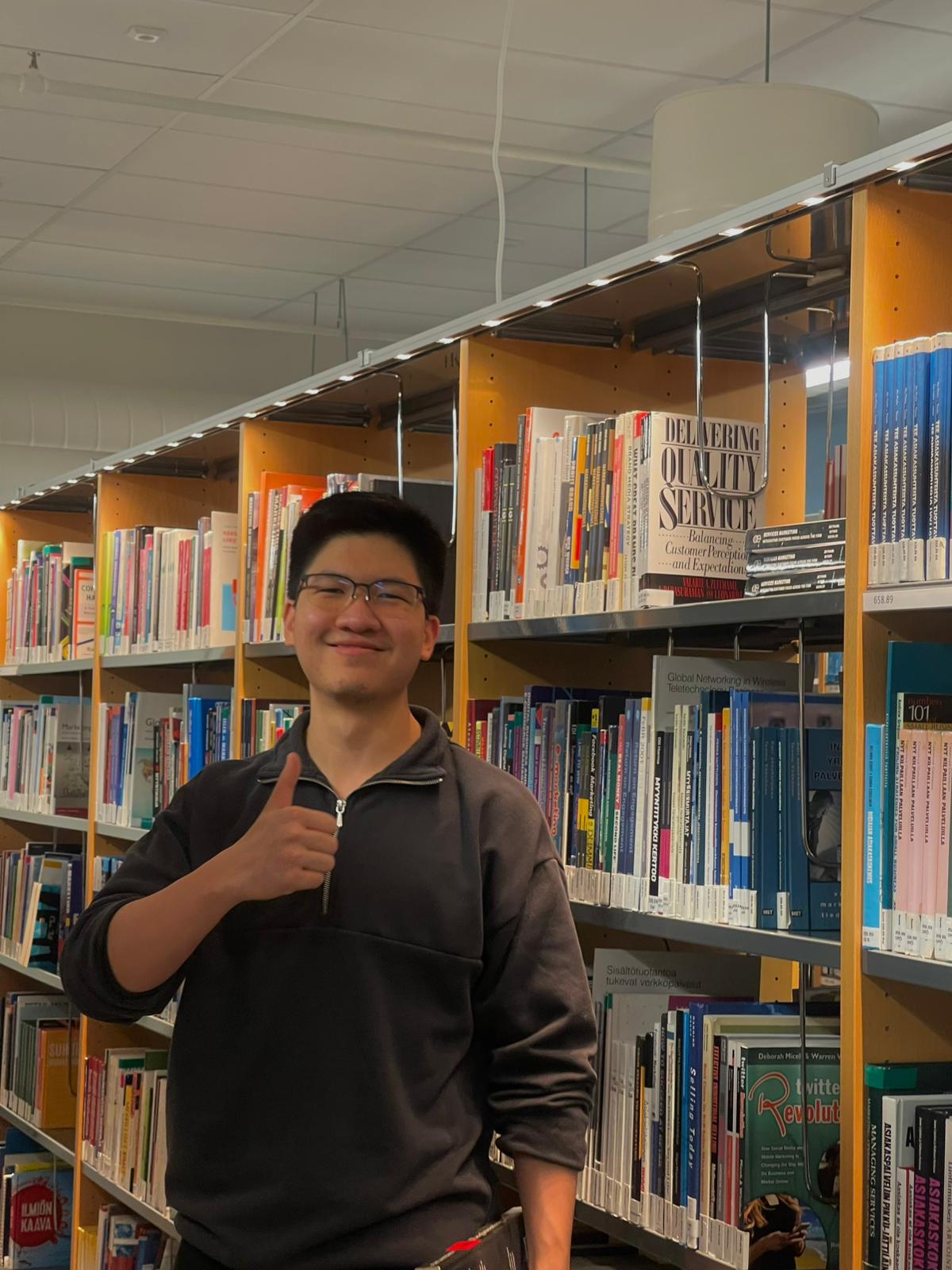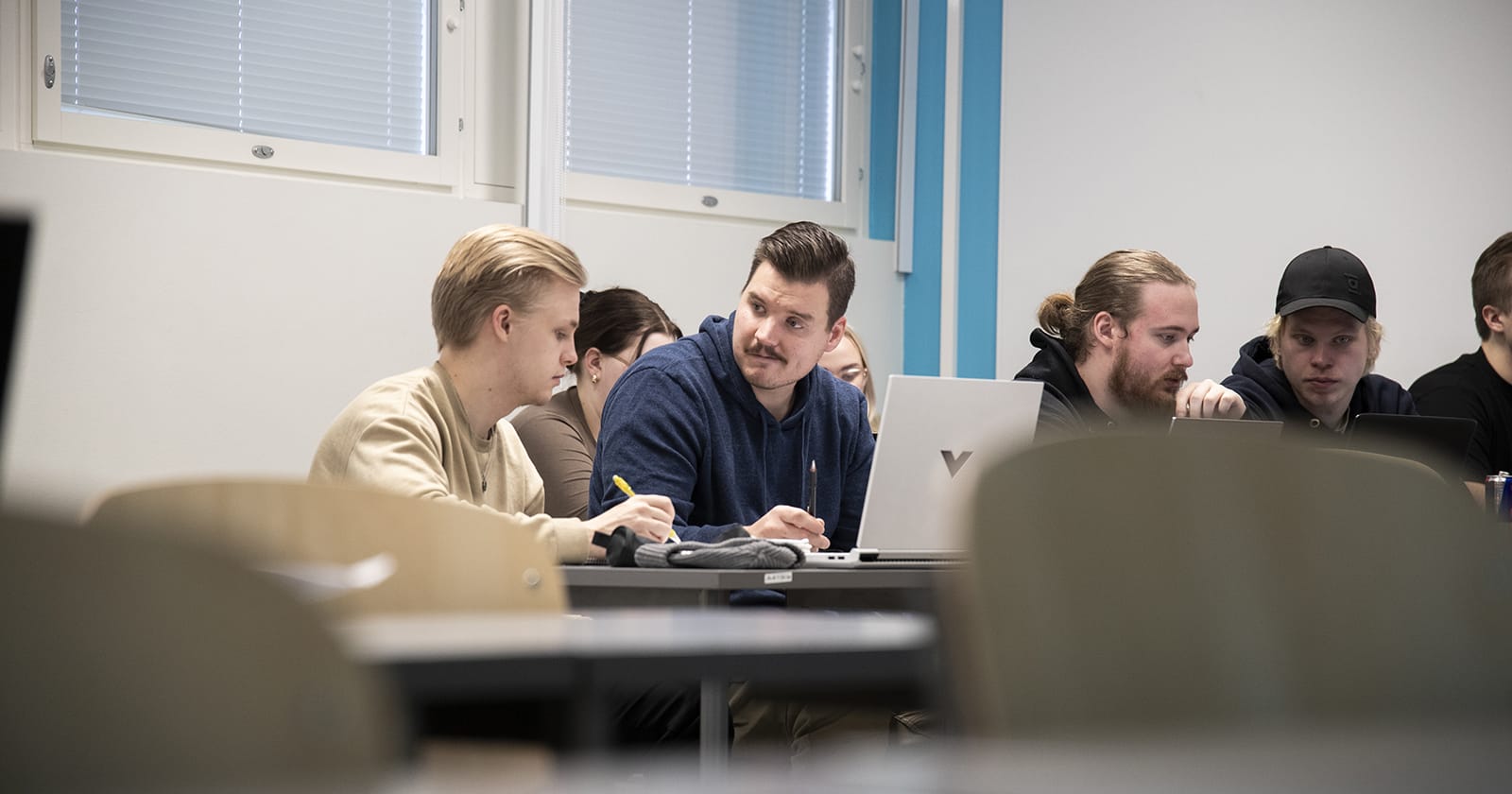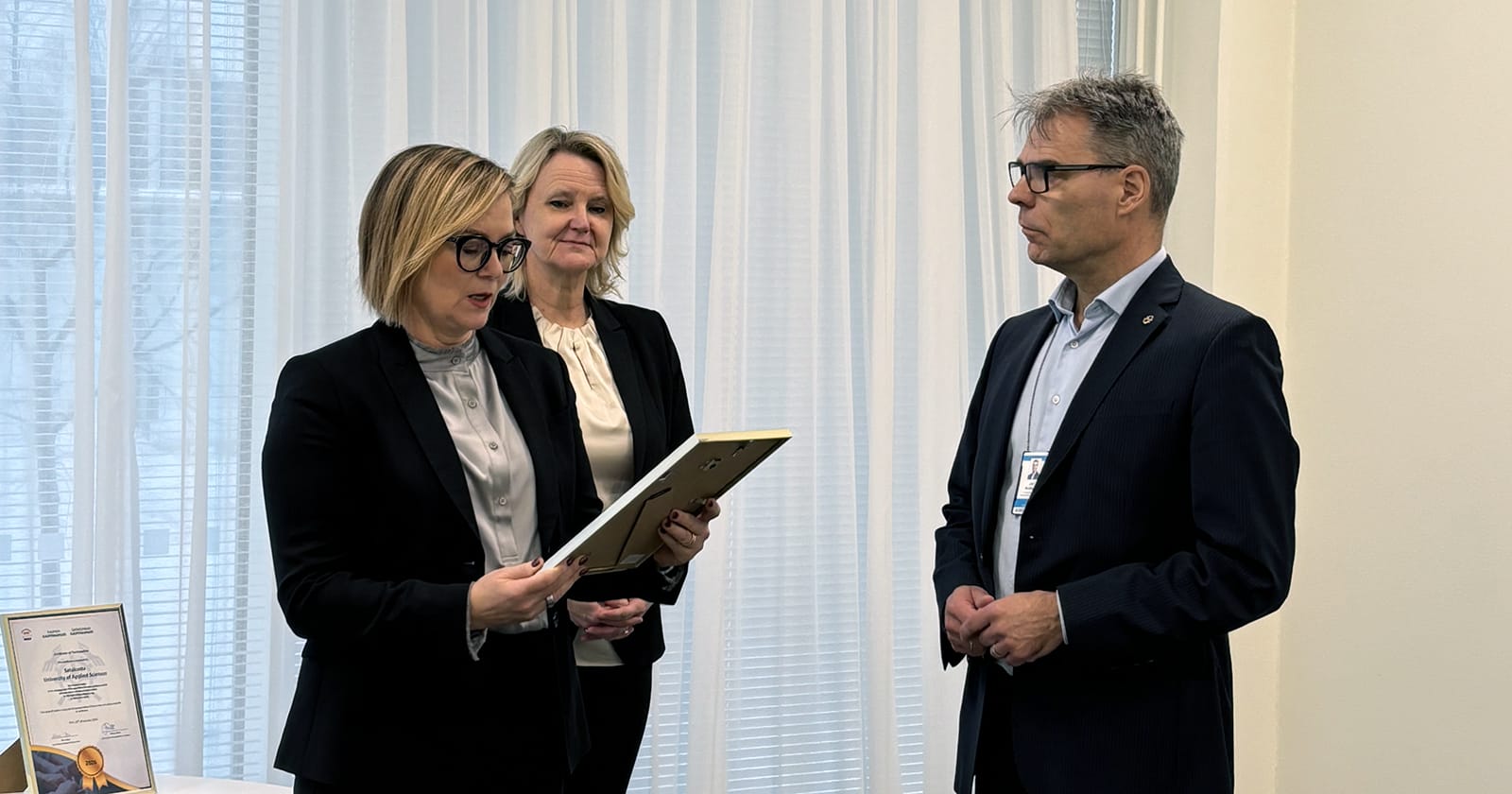The Winter School offers students studies in Finnish culture, and English and Finnish languages.
– We also offer “tasters” and workshops on our degree programmes taught in English,” says Ari-Pekka Kainu, Head of International Relations at SAMK.
The Taiwanese visitors also visit the cities of Pori and Rauma and spend a weekend at MuuMaa farm in Merikarvia.
Student recruitment through direct contact
From SAMK’s perspective, the idea is to build a direct link with senior high schools and to increase educational exports, coordinated marketing and student recruitment through cooperation.
– The aim is to present Finland and especially SAMK and its study opportunities in a comprehensive way. Students are offered information and in-depth knowledge about what studying here is like. At the same time, SAMK’s profile will be raised worldwide,” says Ari-Pekka Kainu.
The curriculum of the visitors includes a compulsory summer or winter school abroad.
– The focus is on internationalisation and getting to know and learn about the local culture. We have also introduced winter hobbies and nature in our leisure activities.
One aspect of the visit is internationalisation at home. The Student Ambassador students and international trainees participating in SAMK’s education export are involved in the organisation of the visit and at the same time develop their international skills.
– For the participating teachers and other staff, this is also a good opportunity to learn about a foreign culture,” says Ari-Pekka Kainu.
Experiencing sauna and ice hockey
Jun Kajee, a teacher with the senior high school group, says the Winter School is the result of a long period of planning. He previously studied at the University of Tampere, and his studies included a practical training. He did this at SAMK.
– I worked on many things here and one of them was a possible Winter School. So, when this Winter School later became timely, I contacted Ari-Pekka. He thought it was a good idea.
Jun Kajee is happy with the Winter School. Senior high school students have also appreciated the experience.
– They have found the experience interesting. From their point of view, the class sizes here are quite small. And there is a lot of freedom and a low hierarchy. The teachers create a very informal and warm atmosphere with the students. They encourage students to call them by their first names, for example. This is very different from Taiwan,” Jun Kajee reflects.
The students have also learned some Finnish during their visit. Jun Kajee feels that this will give them a slight advantage in the application phase if they are interested in studying in a Finnish higher education institution. It is easier to apply for higher education in a foreign country when you already know a little of the language and culture.
– There are things our students have come across for the first time. For example, going to a Finnish sauna and an ice hockey game.
He mentions that the Taiwanese and Finnish education systems have similarities, but also differences. One of the reasons why Finland was chosen as the country to visit is precisely because of the differences in the education system. They wanted to learn more about the foreign higher education system.
– In Taiwan, education is still mainly of the traditional classroom type. There is also a great deal of reliance on things like ranking lists of educational institutions. The Finnish education system is very different. But at the same time, both do quite well in surveys on the quality of teaching.
At the heart of trust and mutual benefit
Jun Kajee encourages others to find out more and take part in Winter Schools or other cultural exchanges.
– It is important to understand what schools may want from the exchange. For example, are they looking for similarities or things that the other organisation can offer? Differences also need to be understood and taken into account. The importance of working with a trustworthy and credible partner, like SAMK, should not be underestimated. Trust nurtures a relationship of mutual benefit and this is at the heart of any successful international partnership.
There is also a larger, national objective behind the exchange. Jun Kajee mentions an initiative supported by the Taiwanese government known as 2030 Bilingual Nation. Its aim is to make Taiwan a bilingual nation by 2030, with international education as a key component.
In light of the European Union’s increased engagement with Taiwan, Jun Kajee hopes that cooperation and funding mechanisms can be further improved in the future.
– I see a lot of opportunities. It is great to be able to work with people I like in a field I am passionate about. My ambition is to see something really meaningful come out of what we have achieved in this collaboration.



